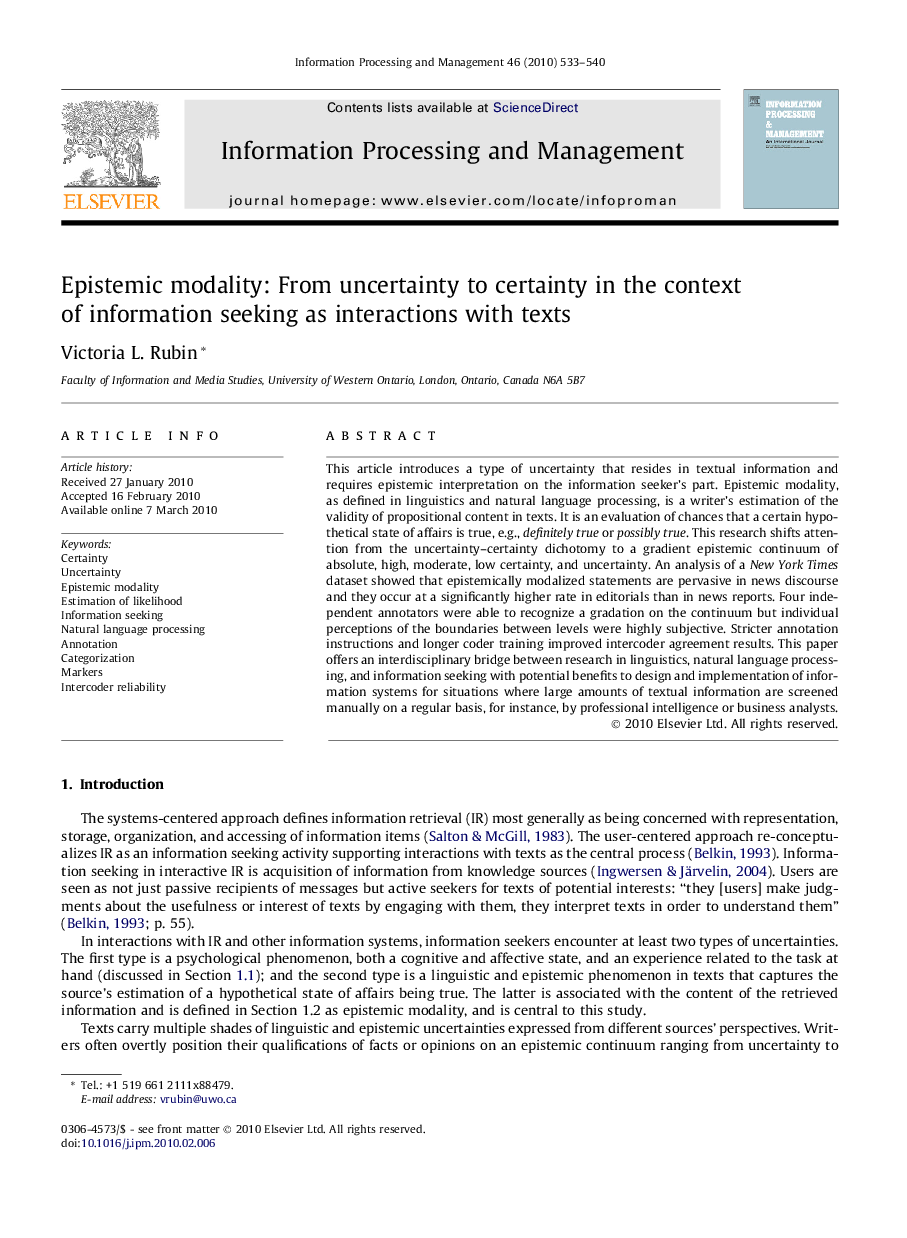| کد مقاله | کد نشریه | سال انتشار | مقاله انگلیسی | نسخه تمام متن |
|---|---|---|---|---|
| 515690 | 867074 | 2010 | 8 صفحه PDF | دانلود رایگان |

This article introduces a type of uncertainty that resides in textual information and requires epistemic interpretation on the information seeker’s part. Epistemic modality, as defined in linguistics and natural language processing, is a writer’s estimation of the validity of propositional content in texts. It is an evaluation of chances that a certain hypothetical state of affairs is true, e.g., definitely true or possibly true. This research shifts attention from the uncertainty–certainty dichotomy to a gradient epistemic continuum of absolute, high, moderate, low certainty, and uncertainty. An analysis of a New York Times dataset showed that epistemically modalized statements are pervasive in news discourse and they occur at a significantly higher rate in editorials than in news reports. Four independent annotators were able to recognize a gradation on the continuum but individual perceptions of the boundaries between levels were highly subjective. Stricter annotation instructions and longer coder training improved intercoder agreement results. This paper offers an interdisciplinary bridge between research in linguistics, natural language processing, and information seeking with potential benefits to design and implementation of information systems for situations where large amounts of textual information are screened manually on a regular basis, for instance, by professional intelligence or business analysts.
Journal: Information Processing & Management - Volume 46, Issue 5, September 2010, Pages 533–540